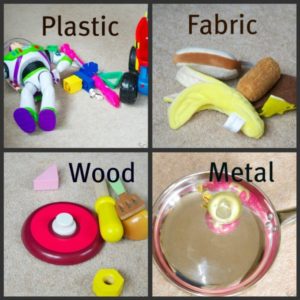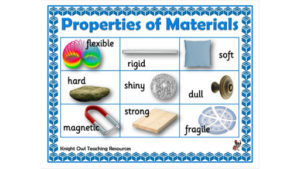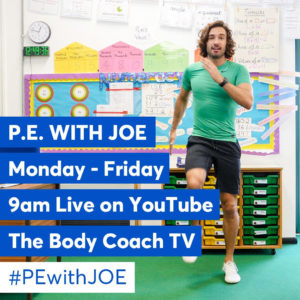23 March 2020: Home learning
Year 5 Maths Task
Starter: Times Tables Rockstars- improve your multiplication skills.
Your learning today is place value.
- Create 3 part whole models for 4,050.

2. Partition the following numbers.
For example: 5, 945 = 5,000 + 900 + 40 + 5
6,528
8,741
26,589
78,645
- Here are the numbers of tickets sold at a theme park per month.
| January | 33,569 |
| February | 76,598 |
| March | 21,324 |
| April | 111,236 |
| May | 109,487 |
Use the more and less than symbols < > to create 4 statements for the populations.
111,236 > 76,598
Challenge: Can you create your own table of information, like above, containing numbers that you can compare? Write some statements for your information using < > and =.
Year 6 maths task
Starter: Use two dice, a number spinner or a pack of playing cards (picture cards are zero) to generate two 7-digit numbers e.g.
6,527,901 and 6,420,100
Compare using the ‘greater than’ symbol (>) or “less than” symbol (<).
6,527,901 > 6,420,100
Choose 10 more numbers to compare.
Your learning today is rounding. Using the numbers that you have already created, round each to the nearest 10, 100, 1000, 10,000 and 100,000.
Example:
6,527,901
10 – 6,527,900
100 – 6,527,900
1,000 – 6,528,000
10,000 – 6,530,000
100,000 – 6,500,000
Challenge: Whitney rounded 2,156,708 to the nearest 10,000. Her answer was 2,200,000. Explain her mistake.
Writing task (Year 5 & 6)
Your learning today is writing speech.
Your task is to create a script between two characters of your choice. This script can be linked to something we have previously learnt (such as the Vikings), or something else of your choice. Remember to use character speech to convey character. You may also choose to add some stage direction to add extra information. You do not need to punctuate any speech when writing a script.
Tip: Convey character means to tell the reader about a character through what they said and how they said it.
“I bet you can’t catch me!” laughed Billy.
This tells the reader that Billy is a confident boy, who believes he is very fast.
Reading Task (Year 5 & 6)
As a class, we’ve been enjoying reading our class novel ‘Viking Boy’. Today, we’d like you to create a story map for what has happened so far in the book. This can be as creative as you like but must include the key moments and characters from the story so far. Here is an example of a story map for a story that most of us will be familiar with…

Challenge 1:
Summarise the story so far in 10 words, 5 words and 1 word.
Challenge 2:
Re-write the story so far in a shorter form (this could be one paragraph or more).
In addition, we always recommend that children read for 20 minutes every day – what a perfect time to make sure children are reading loads!
23 March 2020 : Home learning
Morning!
Here are your tasks for today. Each day there will be three main tasks.
We would also like you to read for at least twenty minutes per day – to yourself, your mum, dad, teddy or pets. It could be in two, 10 minute sessions.
Each Monday, we will also upload a set of spellings for you to practise over the course of the week. Then on Friday, see if you can write them out without looking at them. Someone could test you if you want.
Y2s will also have a set of times table or division facts to learn.
Year 1 spellings
- me
- mine
- ask
- asking
- asked
- no
- some
- school
Year 2 spellings
- child
- children
- Christmas
- class
- climb
- clothes
- cold
- could
- door
- even
Times tables : times 2 and divide 2
Maths
Watch and join in with the doubles song : https://youtu.be/8jOzhiACB68
Make 10 in as many ways as you can.
eg 5+5=10, 10=4+6, 1+4+4+1=10, 15-5=10
Make 20 in as many ways as you can.
eg 10+10=20, 1+19=20, 2+18=20, 25-5=20, half of 40 is 20.
Reading
Read about the seasons and answer the questions in your home learning book.

1. How many seasons are there in one year?
2. In which season do leaves start to grow on the trees?
3. What type of weather is there more of in the summer?
4. Copy and complete : In autumn, leaves change colour and fall from the _________.
5. List all the clothes you might need in winter.
Science
Sort the toys in your bedroom according to their material eg plastic, wood, metal.

Challenge: Sort the toys again, according to their properties eg rigid, smooth, bendy. Take a picture or draw your groups.

Home Learning- emails
In my case, this means the email to use is:
I’ll aim to reply on the same day and no later than the following morning. To keep this manageable, please restrict emails to one per day, per child.
Emailing teachers
Email teachers if you’re unsure about some aspect of the home learning. The email addresses follow the same pattern in Key Stage 1 and 2: joebloggs@spherefederation.org
Home learning emails
During this home learning period, email us if you’re unsure about some aspect of the home learning. The email addresses follow the same pattern in Key Stage 1 and 2:
In our case, this means the emails to use are:
beckyrowley@spherefederation.org
We’ll aim to reply on the same day and no later than the following morning. To keep this manageable, please restrict emails to one per day, per child.
PE with Joe Wicks
Some classes have used Joe Wicks workouts in their PE lessons recently and he has sent a message for you all.
Starting Monday 23rd March I’m going to be hosting a free workout aimed at kids LIVE on my YouTube channel.
With the schools closed and with us all spending more time at home, it’s more important than ever that we keep moving and stay healthy and positive.
Exercise is an amazing tool to help us feel happier, more energised, and more optimistic.
The workouts will be fun and suitable for all ages and even adults can get involved.
You don’t need any equipment, just tune in to my YouTube channel at 9am each morning for a 30-minute, fun workout.
One more thing! I really need your help to spread this message. So please please share this with everyone that might like to get involved, and together we can help keep the nation moving
🏻

20 March 2020
This week, the whole school has the same Talk Time homework: I can pay and receive compliments to/from people outside of school.
This homework, which links to our recent living and learning statement, is an opportunity for children to discuss the benefits of paying compliments to people. Here are some questions that might shape your discussion:
- How does paying a compliment make you feel?
- How does receiving a compliment make you feel?
- Why is it important to be sensible when paying or receiving compliments?
- Can you compliment people too much?
- Is it ok to compliment a stranger? Is this safe?
Children should be ready to discuss what they’ve talked about at home by Thursday 26 March 2020. It would be even better if children were able to talk confidently about times when they have given, or received, a compliment.
13 March 2020
Our homework this week is Creative: I can show my talents.
All of the children in our school are blessed with an array of talents. This week, our homework, which links to our living and learning statement (I can recognise my talents), gives our children the opportunity to celebrate and share their talents. Children should respond creatively and be ready to show off their talents to their peers as part of their homework review. They could do this in a range of ways:
- create a short performance to show to the class
- film themselves showing off their talent
- make a collage of their many talents
- produce a piece of art to show off their talents
There are, of course, many other ways that children could respond. Children should be ready to show off their talents by Thursday 19 March 2020.
Friday 06 March
This week our homework is Practice makes perfect and is due on Thursday 12 March.
The homework is based around our maths learning for this week.
Here are some fraction games which may help you:
Cassowary Fractions – this game helps you practice your equivalent fractions.
Fractions Matcher – year 4 challenge yourself to use mixed numbers.
06 March 2020
This week’s homework is Practice makes perfect.
Children have been asked to complete a fluency sheet to work out the area and perimeter of shapes.
Here are some links to support and challenge your child at home.